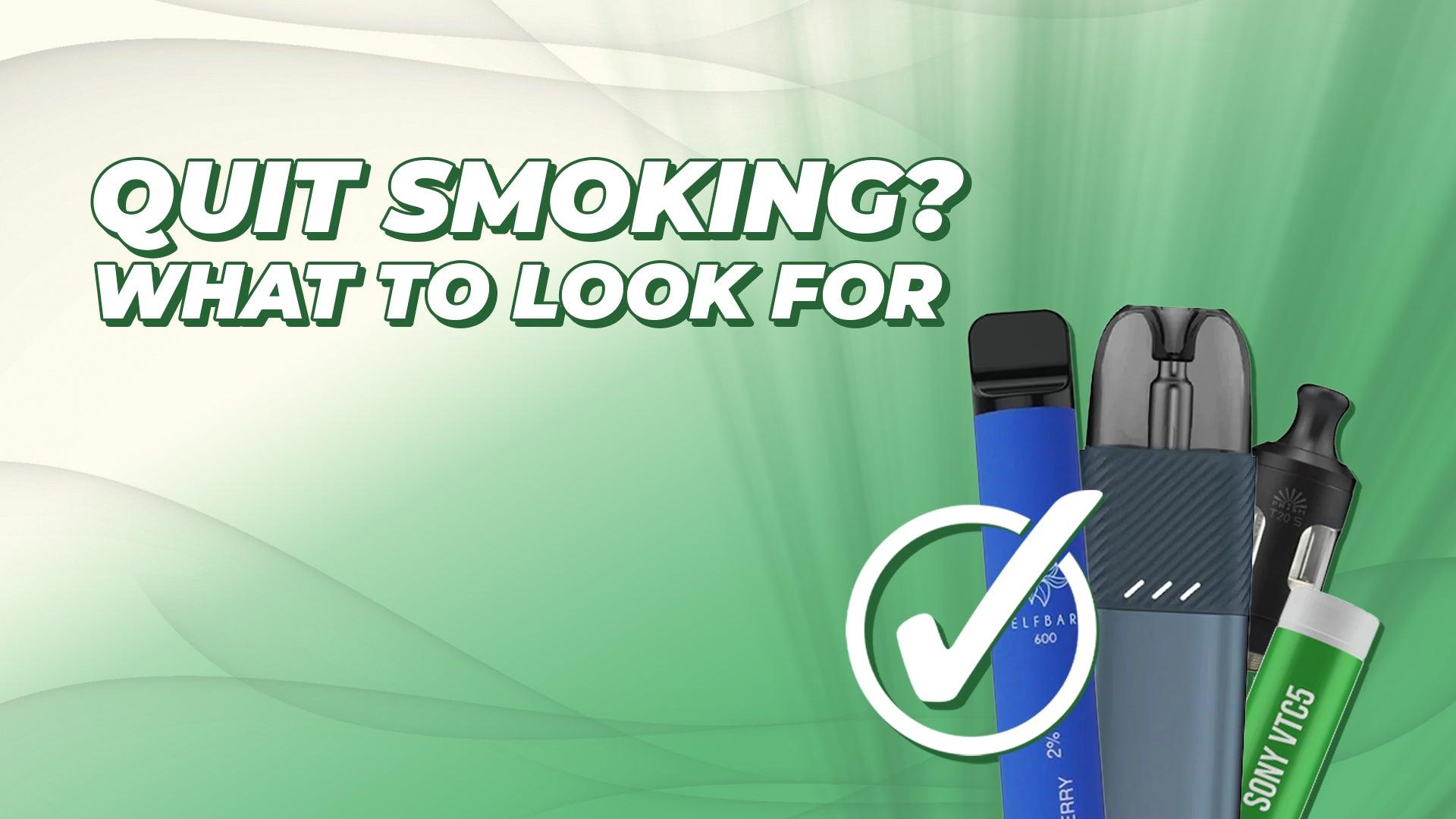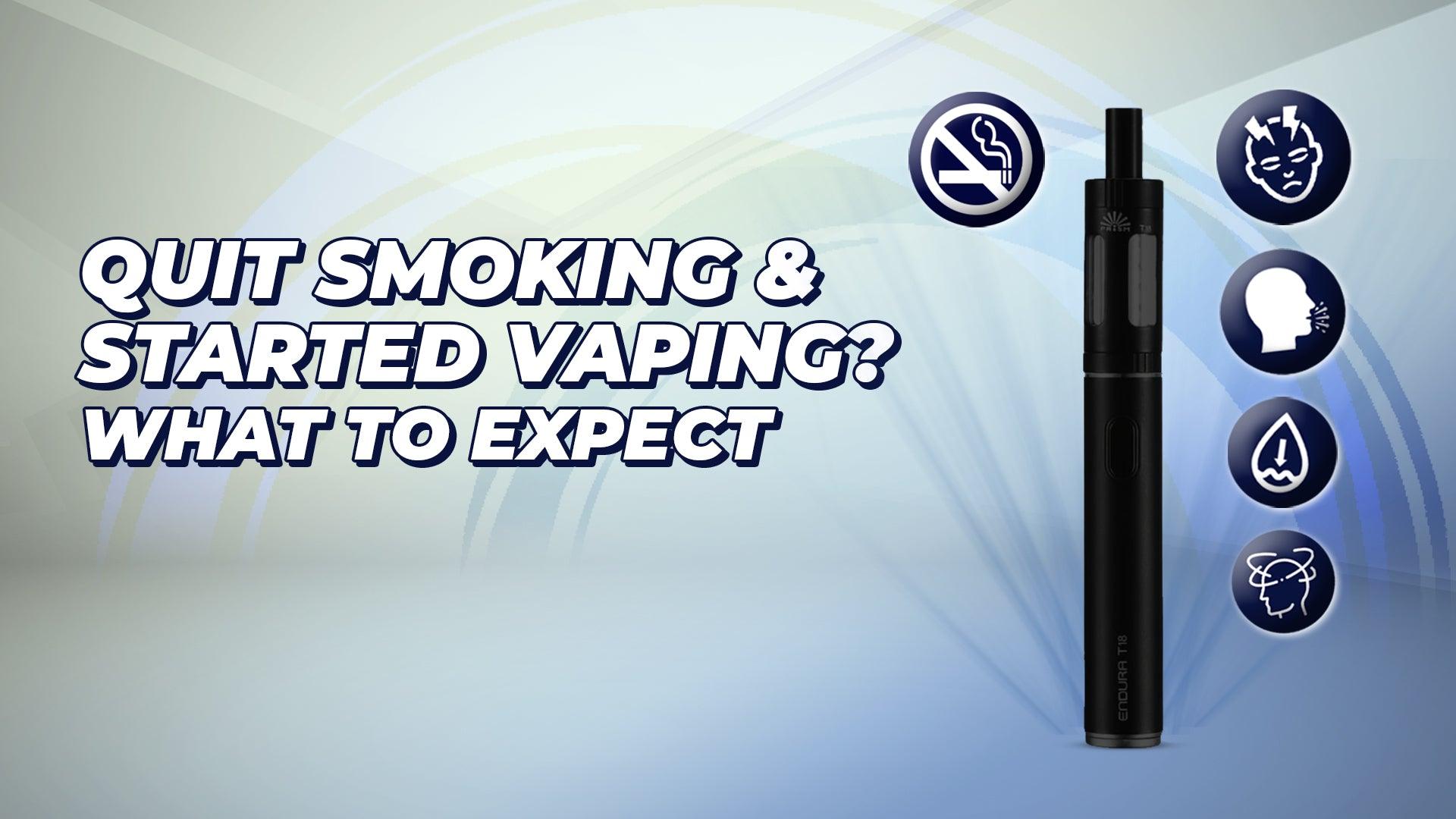Quit Smoking for a Healthier Lifestyle

Quitting Smoking: Healthy Living
It’s been said time and time again, but it bears repeating. Quitting smoking is one of the best things you can do for your overall health. It’s also one of the hardest.
A key thing to bear in mind with quitting smoking is that it’s not a one-shot solution. Instead, think of it as a process. Although quitting smoking is the end goal of this process, by breaking it down into a series of incremental steps, you’ll be giving yourself a series of small goals that are more easily achievable. Not only will this give you a more frequent sense of accomplishment, it will also gradually bring you closer to that final end goal, rather than positioning it as a single, giant, insurmountable task. Or, to borrow an old adage: slow and steady wins the race.
When it comes to habits: they’re easier to replace than they are to break. More than likely, attempting to immediately cut smoking out of your everyday routines will leave a large, cigarette-shaped hole in your life. But what if you simply filled that hole with something else?
By switching to an e cigarette, you can retain the ritual whilst reducing the risk. Regular smokers who quit cold turkey experience a range of withdrawal symptoms, such as headaches, irritability, and an unfocused state of mind. Of course, this isn’t a result of no longer smoking, but of cutting off your regular nicotine intake. Switching your cigarettes for a e cigarette allows you to continue using nicotine, in a more controlled manner, whilst doing away with the myriad health risks associated with smoking. This increased level of control also lets you gradually reduce your nicotine consumption to a point where you’re totally nicotine-free.

Smoking and Health Issues
It’s common knowledge that smoking is bad for your health. A large part of this is the direct damage to your body from smoking itself, but another aspect of this is how smoking can often be a roadblock toward habits that promote overall increased health and wellbeing.
Three key, interlinked aspects that we’ll briefly examine here are the effects of smoking on exercise, stress, and sleep. We’ll be looking at how smoking makes exercise less effective, how it can make it harder to deal with stress and anxiety, and how it interrupts deep, restful sleep.
Getting regular exercise helps us sleep better, both of which can help with feelings of anxiety. A smoking habit could be affecting any of these three areas of your life without you necessarily noticing, which then leads to negative effects in all three areas.
We want to help our customers quit smoking, so that they can more easily live their best lives. The good news is that these health issues stem from tobacco itself, rather than nicotine. That way, you can safely switch to vaping and begin to experience health improvements almost immediately.

How does smoking affect exercise?
This one should come as no surprise: smoking has both immediate and lasting negative effects on exercise and physical activity.
The most obvious area affected by smoking is lung capacity. There are thousands of chemicals present in cigarettes, with two of the main culprits being carbon monoxide and tar.
Carbon monoxide deprives blood cells of oxygen, which results in shortness of breath, an effect further intensified during strenuous activity — such as aerobic exercise (i.e. cardio). This has a dual effect on both the heart and the lungs. The heart has to work harder to pump oxygen-deprived blood from the lungs to the rest of the body. This results in a swelling of the airways, causing even less air to enter the lungs. Long-term exposure to carbon monoxide eventually destroys lung tissue, leading to lung disease and cardiovascular problems.
The effects of tar on the lungs are slightly more direct. The small tubes that absorb oxygen into your lungs (bronchioles) are blocked and constricted by tar buildup. Tar also damages the small hairs (cilia) that cover the lungs and protect them from dirt and infection.
Smoking doesn’t just make cardio harder, either — it affects all forms of exercise. As well as your lungs, carbon monoxide prevents proper blood flow to all parts of your body, including muscle tissue. Without sufficient blood and airflow to your muscles, your workouts will be less effective and more strenuous. You’ll also likely find that your body is less efficient in the post-exercise recovery phase, meaning the road to physical fitness will be longer and harder.

Does smoking reduce stress and anxiety?
As stigma surrounding mental health has dissipated, most of us have gained awareness surrounding signs of anxiety, as well as ways to cope with it. One simple, short-term treatment for feeling anxious is proper breathing.
When we’re stressed, it’s normal for our breathing to become faster and shallower, which in turn makes us feel more stressed and anxious. By focusing on breathing in a deep, controlled manner, we can feel happier and more relaxed. As smoking has a negative effect on our overall ability to breathe, a long-term smoking habit may actually have a knock-on effect of contributing negatively to feelings of stress and anxiety.
To some extent, it’s natural to think of cigarettes as a stress-reliever. Most smokers are no stranger to that feeling of sweet relief you get from that well-earned first drag. This is, of course, simply a lie our brains tell themselves.
It is worth noting that nicotine has both a stimulating and a relaxing effect — that is, it can increase alertness and stave off tiredness whilst also providing a soothing, mood-improving effect. Nonetheless, taken on the whole, smoking is more likely to increase than decrease stress and anxiety.
This is not a direct result of smoking per se, but instead stems from the addictive nature of smoking. A cigarette addiction essentially creates a negative feedback loop wherein smokers feel stressed and anxious until they can get their fix. So, smoking relieves this tension, but this tension only arises as a result of the addiction.
In short, smoking only relieves stress and anxiety in smokers because they’re addicted. However, without the addiction to cigarettes, this stress would not arise in the first place.

How does smoking affect sleep?
Smoking negatively affects sleep in various ways, making it harder to fall asleep, to stay asleep, and to get restful, good-quality sleep. On top of that, smokers are at much higher risk of developing sleep apnea, one of the most common sleep disorders.
An article in one journal of biology shows that increased exposure to tobacco disrupts natural circadian rhythms in humans. Basically, smoking messes with your body clock.
As a result, smokers find it harder to fall asleep, and experience a lower quality of sleep, with less time spent in deep sleep than non-smokers. This leads to feeling less rested, with smokers more likely to find themselves tired and agitated when they wake up.
In a study from Johns Hopkins, a higher percentage of smokers than non-smokers reported struggling with restless sleep.
An issue related to this is sleep apnea, a sleep disorder in which breathing repeatedly stops and starts during sleep. Because tissues in the nose and throat are irritated by smoking, this restricts airflow, which increases the likelihood of developing sleep apnea, as examined in this article in the journal Sleep and Breathing. Symptoms of sleep apnea include loud gasping for air during sleep, difficulty staying asleep, waking up with a dry mouth and headache, and irritability and sleepiness during the day.
Since smoking tobacco has been shown to not just disrupt normal sleep, but also to increase the likelihood of developing sleep apnea, smokers are essentially putting themselves doubly at risk of suffering from serious sleep issues.
As research has developed, poor sleep has been linked to a huge range of health issues. According to Sleepfoundation.org, a regular lack of sleep has been shown to affect a person’s mood and cognitive function — leading to poor memory, a reduced ability to process information, and being more prone to mental health issues such as depression and anxiety.
As noted by the NHS, lack of sleep has also been linked to an increased risk of serious physical health issues such as heart attacks and strokes.
This then links back to some of the issues we discussed previously.
If you’re not sleeping properly, you’re not giving your body a sufficient amount of time to rest and heal itself. This increases your chances of regularly feeling anxious and stressed, as well as having a direct knock-on effect on being able to exercise well.
A further sleep issue for some smokers who try to quit is restlessness brought on by nicotine withdrawal, which can be strong enough to wake a person.
By switching to vaping, a person can more gradually taper off their nicotine consumption. Not only would this stop them waking up in the night craving a cigarette, but by being able to consume smaller amounts of nicotine closer to bedtime, they can wind down as the day progresses and enjoy deeper, more restful sleep. We have inspiring success stories of two individuals here at myCigara who have managed to quit smoking and live smoke-free lives.
Help to Quit Smoking at myCigara
Here at myCigara, we exist to make the UK smoke-free. By offering vaping as a viable method for eventually ditching nicotine entirely, we hope to help our customers live a longer, happier life.
Our website has a range of pages, blogs and guides aimed at helping customers along their journey to being smoke-free. If you’ve just landed on our site, we recommend starting with our New to Vaping page.
For more info on the benefits of quitting, check out our in-depth Stop Smoking Timeline.
On our facts & stats page, you’ll find some additional reasons as to why we think vaping is the better choice, alongside links to public health bodies we’ve partnered with to help smokers quit.
If you’re still on the fence, we also have a blog that answers a key question: Is vaping safe?
We also understand that many people prefer an in-person chat about these kinds of things.
Head over to our handy store locator to find your nearest myCigara branch. Combining long-standing industry experience with impeccable customer service, our friendly staff are always on hand and happy to guide you in the right direction toward a life free from cigarettes.


















